Driving around France is a great way to see the country. Not only can you travel in your own time, but it’ll get you off the beaten track and to the more hidden areas.
There are some things you need to know before driving in France, but if you come prepared and aware of the existing French driving rules there will be nothing to worry about. Here are some do’s and don’ts to keep you safe and on the right side of the law.
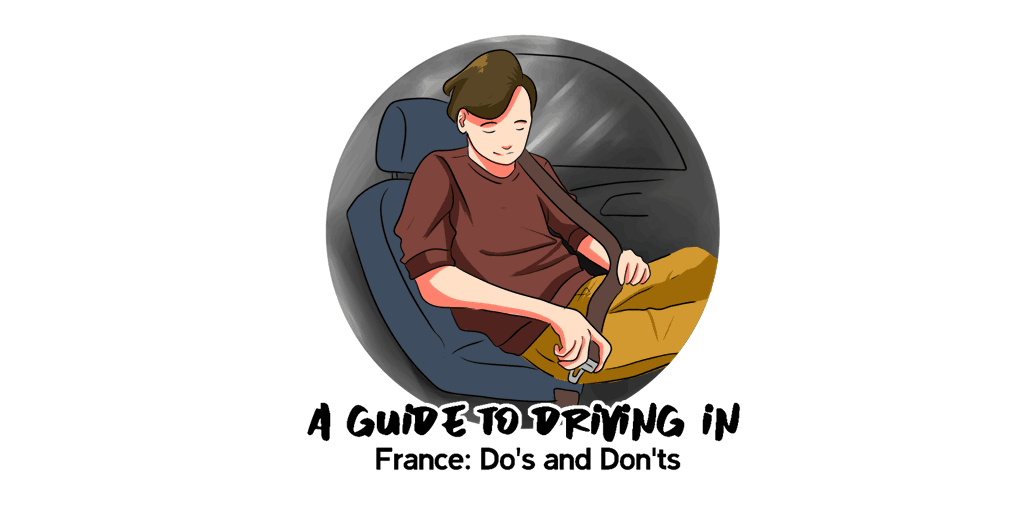
Do: Bring the required documents to drive in France
For a smooth driving trip through France, make sure you do have these documents:
European Union and European Economic Area (EEA) driving licences are valid in France.
Short-term visitors from the rest of the world, including Australia, Canada and the USA, can drive with their national licences. However, you do require an International Driving Permit (IDP) or a notarised translation of your drivers licence.
In reality, it's unlikely that anyone will want to check your IDP, but some car hire companies may require one.
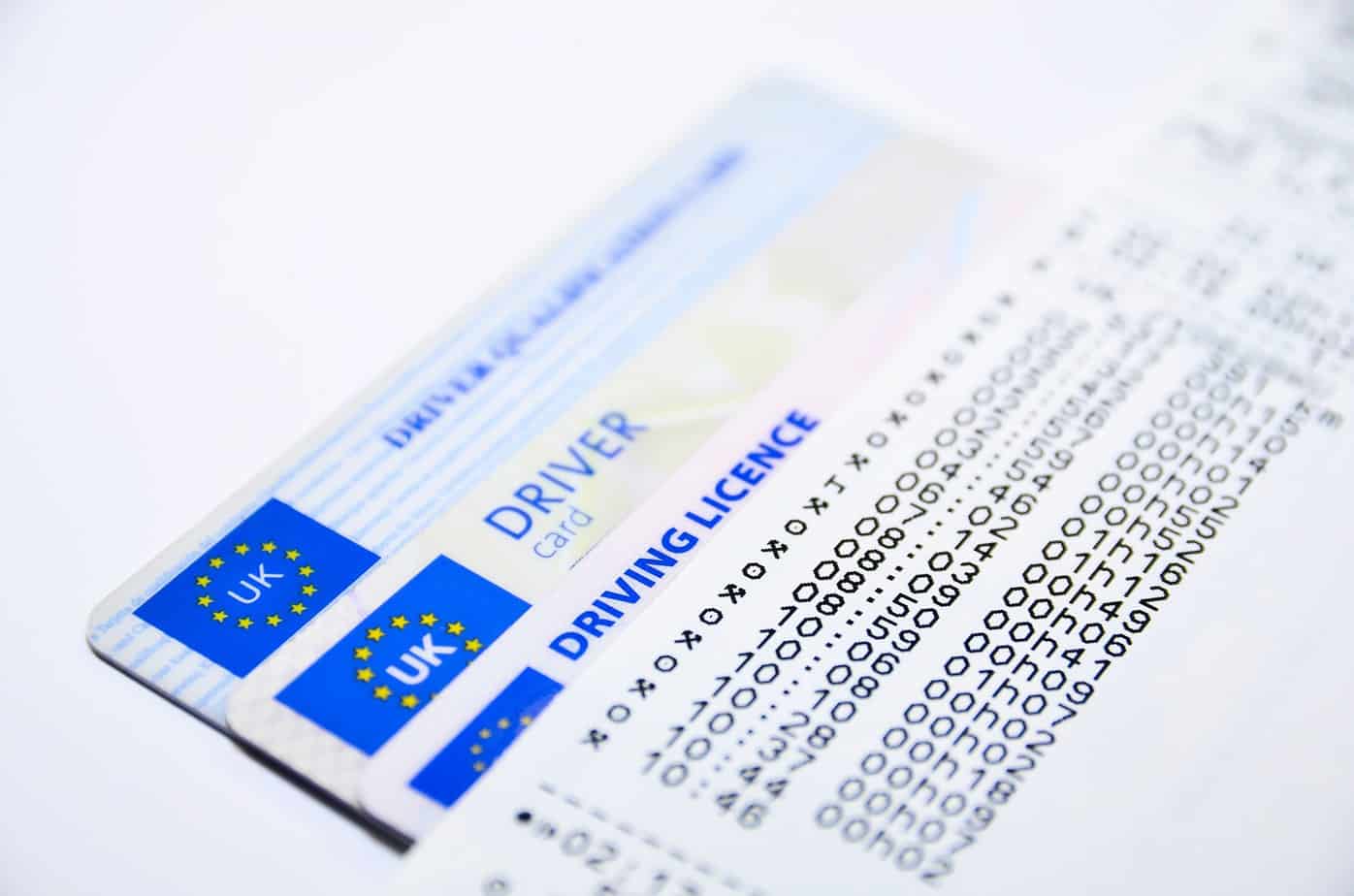
Via Pixabay
Do: Carry these items in your car
By French law each car must be equipped with the following items:
This sticker is mandatory if you intend to drive through central Paris on a weekday or other large French cities (most notably Grenoble, Lille, Lyon, Rennes, Strasbourg, and Toulouse), on days where the air quality is poor, usually during winter.
This sticker rates your vehicles level of emissions, based on a Euro emissions rating system. Vehicles registered overseas are not exempt from this regulation.
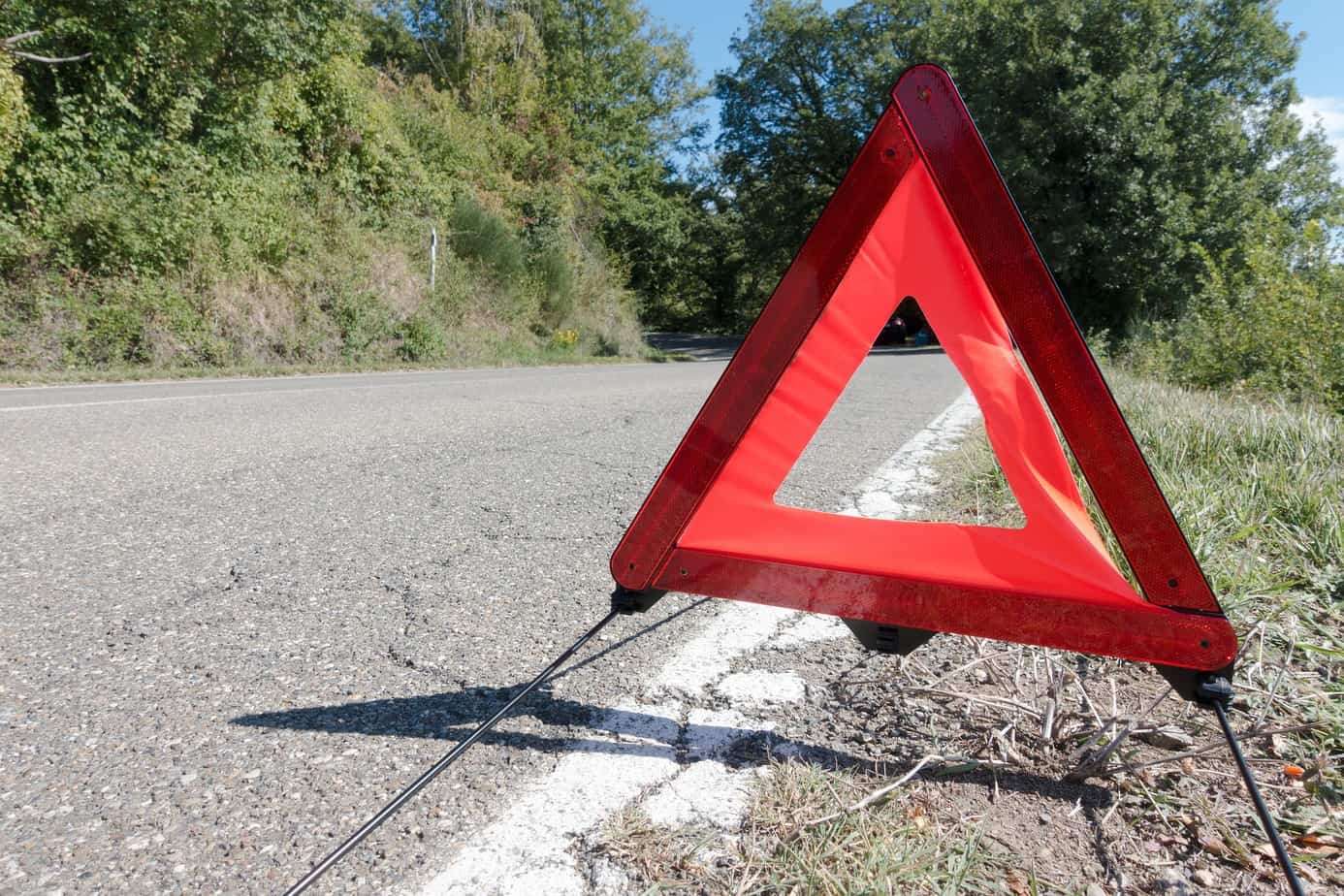
Via Pixabay
Don't: Break any French driving laws
To be sure you stay on the right side of French law, don’t be tempted to break these laws:
Age
You must be at least 18 years of age to drive in France, regardless if you have a full driver’s license from your country.
Seatbelts
It is mandatory for all car passengers to wear a seatbelt at all times. Children under ten years of age must travel in the back seats, using an appropriate child seat.
Drunk Driving
France may well be the land of fine wine, but don’t be fooled – drunk driving is a serious offence. Don’t be tempted to drink and drive, even if it’s just down the road, the consequences could be serious.
The French Police regularly carry out random breath tests, particularly during peak travel or holiday times.
You will be required by law to have a breath test should you be caught committing any driving offence, had an accident or are stopped for random breath testing.
The maximum blood alcohol level is 0.05%, if you are a driver with less than three years driving experience the limit is lower at 0.02%.
Using Mobile Phones
The use of mobile phones while driving is illegal. Even hands-free mobile phone use with a headset or Bluetooth connected earphones is banned. The only type of mobile phone usage that is legal while driving is completely hands and headset free.
If you are caught using a mobile phone or headset, you risk a fine of 135 euros and an immediate suspension of your license, regardless of your nationality.
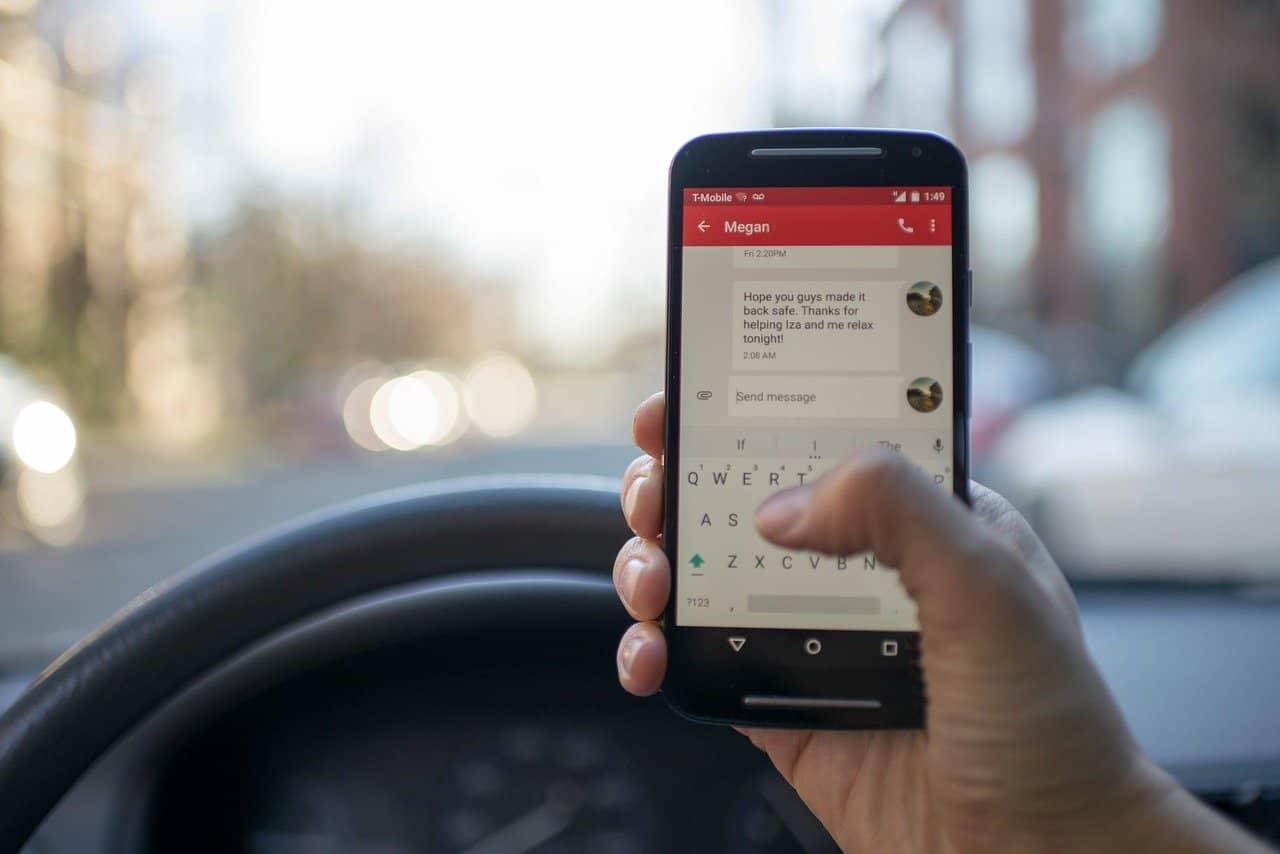
Via Pixabay
Do: Learn and follow French road rules
Do follow the French road rules for a safe and incident-free trip.
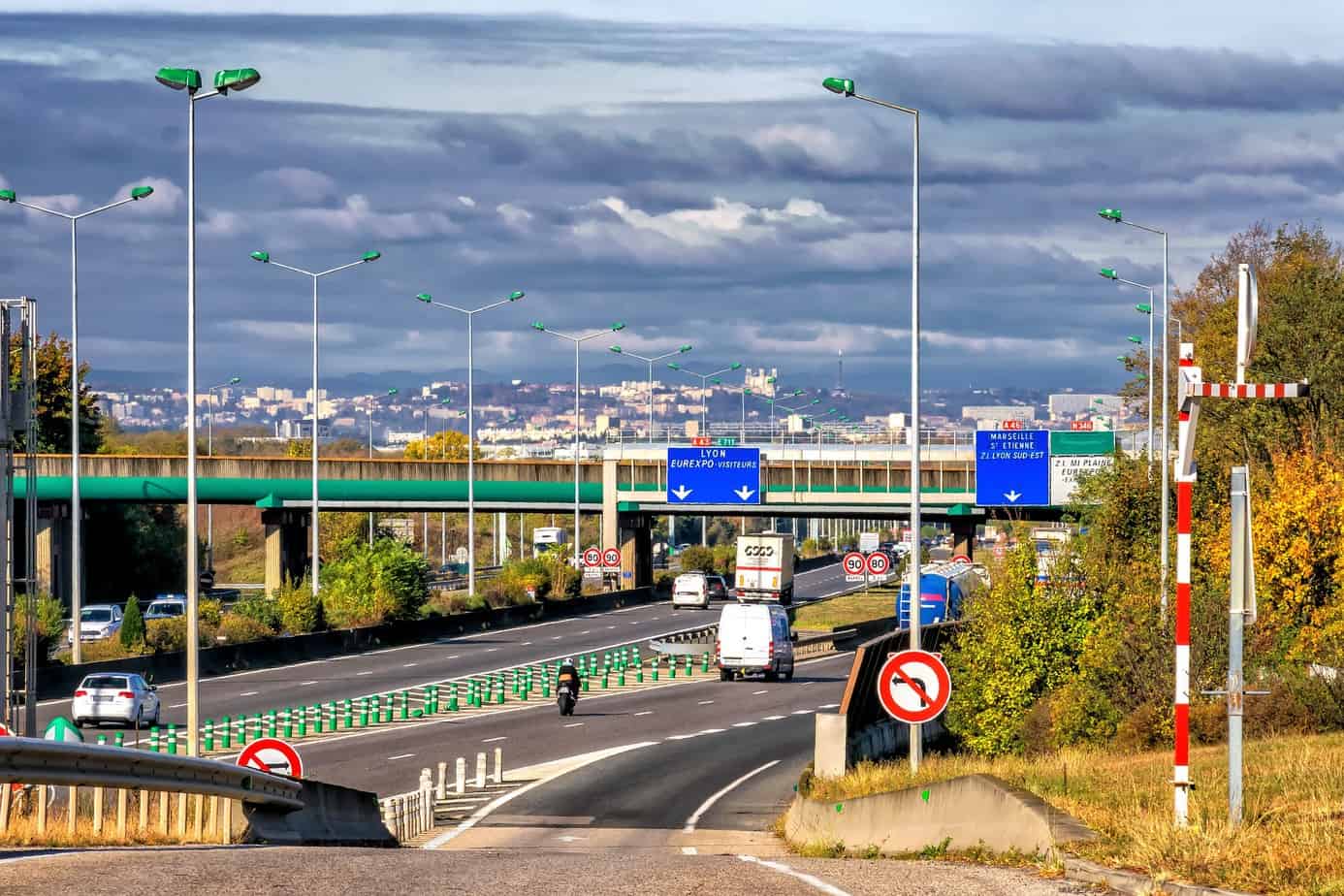
Via Pixabay
Do: Follow speed limits
Frances enforces speed limits nationwide. You need to follow them, unless a different limit is indicated.
110km/h in rain
50km/h if poor visibility
100km/h in rain
50km/h if poor visibility
80km/h in rain
50km/h if poor visibility
Pay close attention to the speed limits indicated around schools.
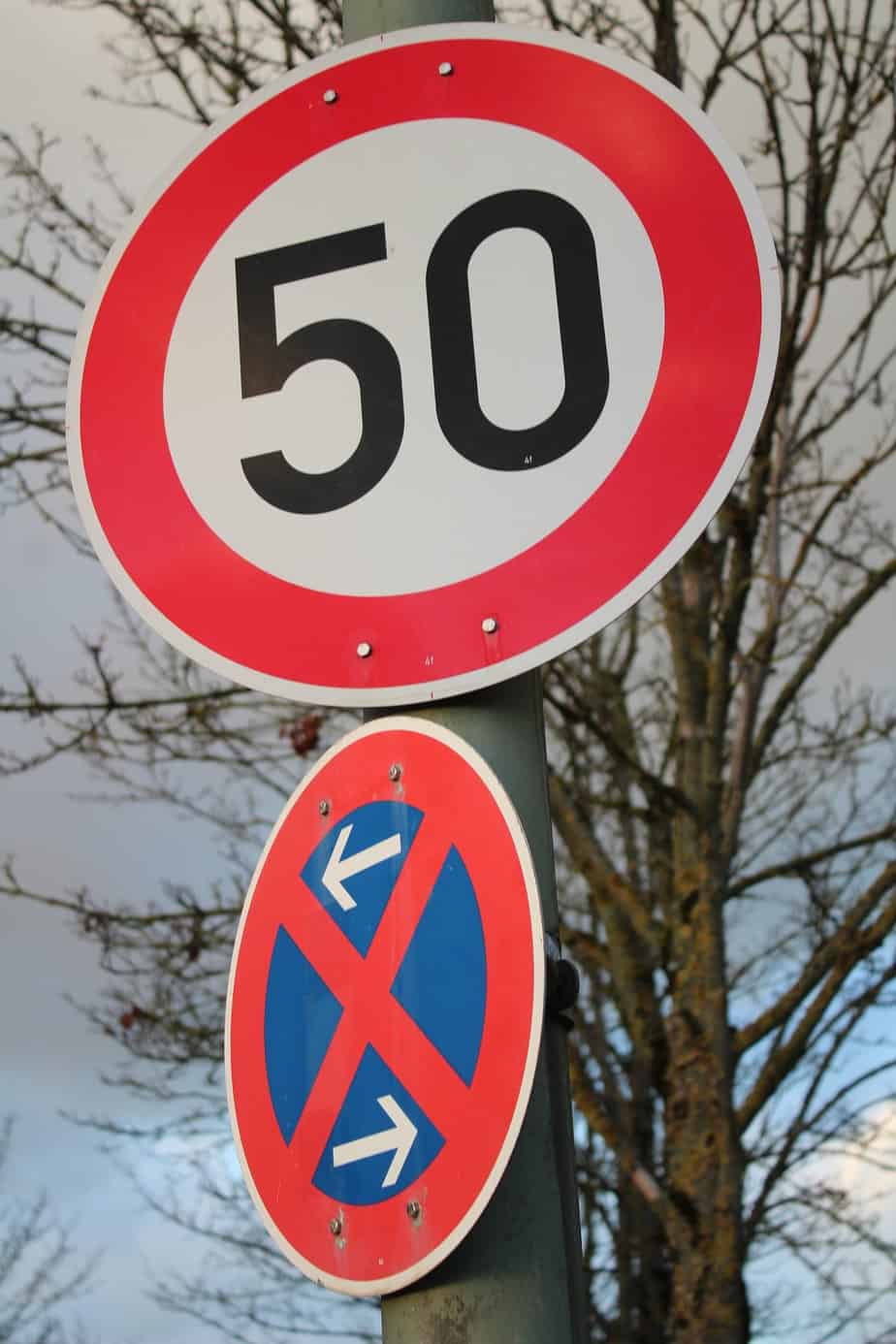
Via Pixabay
Exceeding the speed limit in France is against the law. If caught, you risk being pulled over by police and given a large fine. Speed cameras are widespread and their positions are not always indicated.
If you break the speed limit by 40km/h or more, expect to have your license confiscated on the spot and your vehicle impounded. You are very likely to receive a large fine and may face further penalties, such as being held in custody by the police.
Do: Check parking signs in France
Local parking areas and restrictions are usually indicated by signs. Before leaving your car to enjoy your outing, make sure to check that you’re allowed to park there. Failure to do so may run you the risk of finding no car on your return, as it’s been towed by local authorities.
Don’t park on a single yellow line. This line indicates that parking and stopping are forbidden. Parking on one of these lines will likely result in a parking fine or your car potentially being towed away.
If the yellow line is broken, you may stop to unload, but you cannot park there.
"What if my car breaks down in France?"
Having your car break down is always unfortunate. If you’re on a highway (autoroute), you’ll need to use the orange emergency phones found on the roadside every two kilometres and dial 112.
Don’t call your roadside assistance company yet! A local company will tow your car to a recovery zone, where you can then contact your company.
If you breakdown on another road you can phone your own roadside assistance or insurance company.
Don’t forget to put on your high-vis jackets and set out your orange warning triangles at an appropriate distance (usually 30 metres) from your car. This is essential to keep you safe and to warn other drivers of your position. If you are on a busy road make sure all passengers leave the vehicle and wait behind safety barriers until help arrives.
Quick tip!
It’s a good idea to take out driving insurance, including breakdown cover (roadside assistance) before your trip, so that any problems can be handled easily and efficiently.
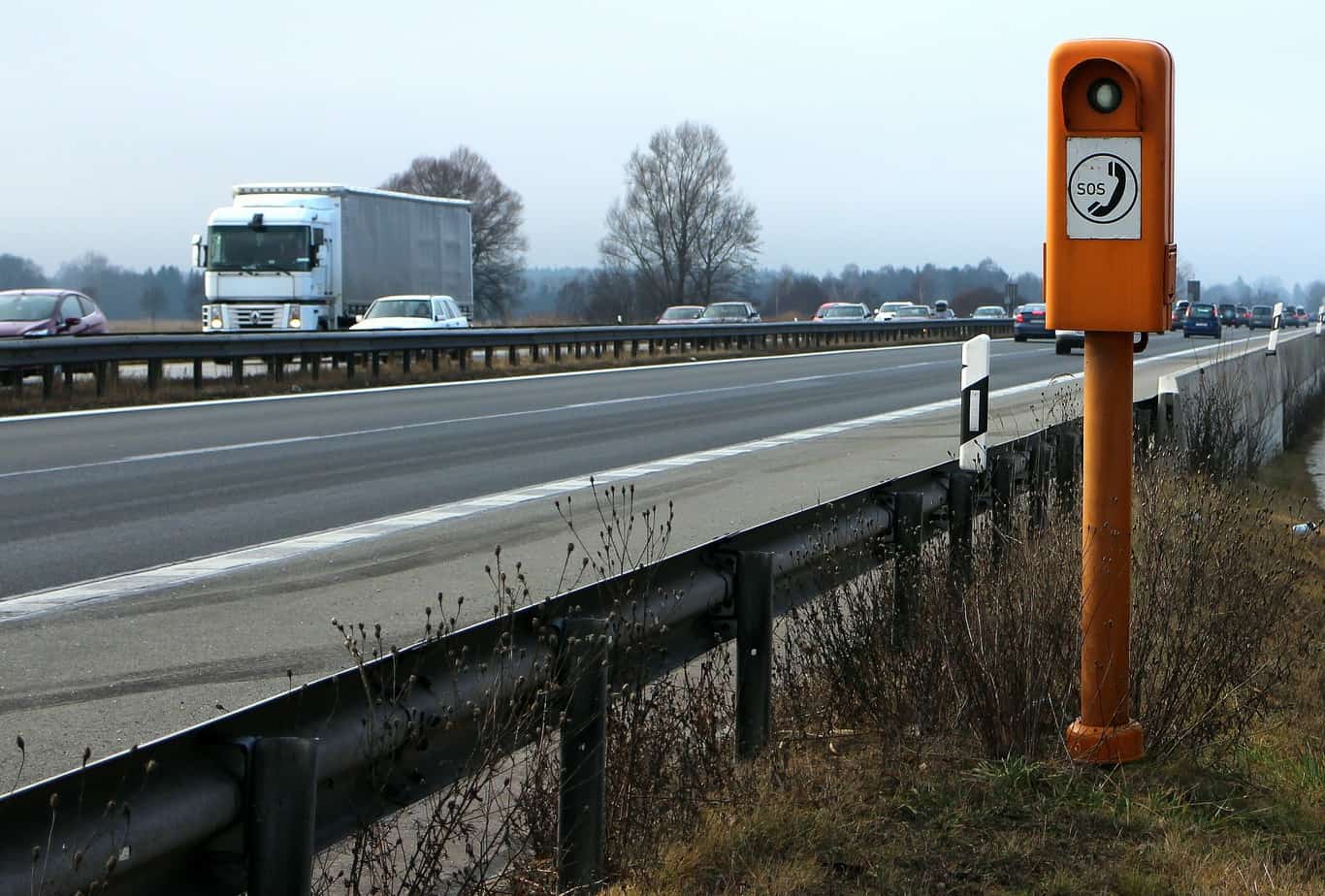
Via Pixabay
Do's and Don'ts: Accidents in France
Accidents can be unavoidable, but do take appropriate action to avoid them wherever possible.
Do's to avoid accidents in bad weather
Make sure to turn your headlights on whenever you are driving in rainy or foggy conditions. If weather conditions are particularly bad use your fog-lights. This is not required by law, but it is common sense.
Make sure to leave a larger than usual safe distance between you and the vehicle in front.
Reduce your speed. Please refer to the previously discussed Speed Limit section.
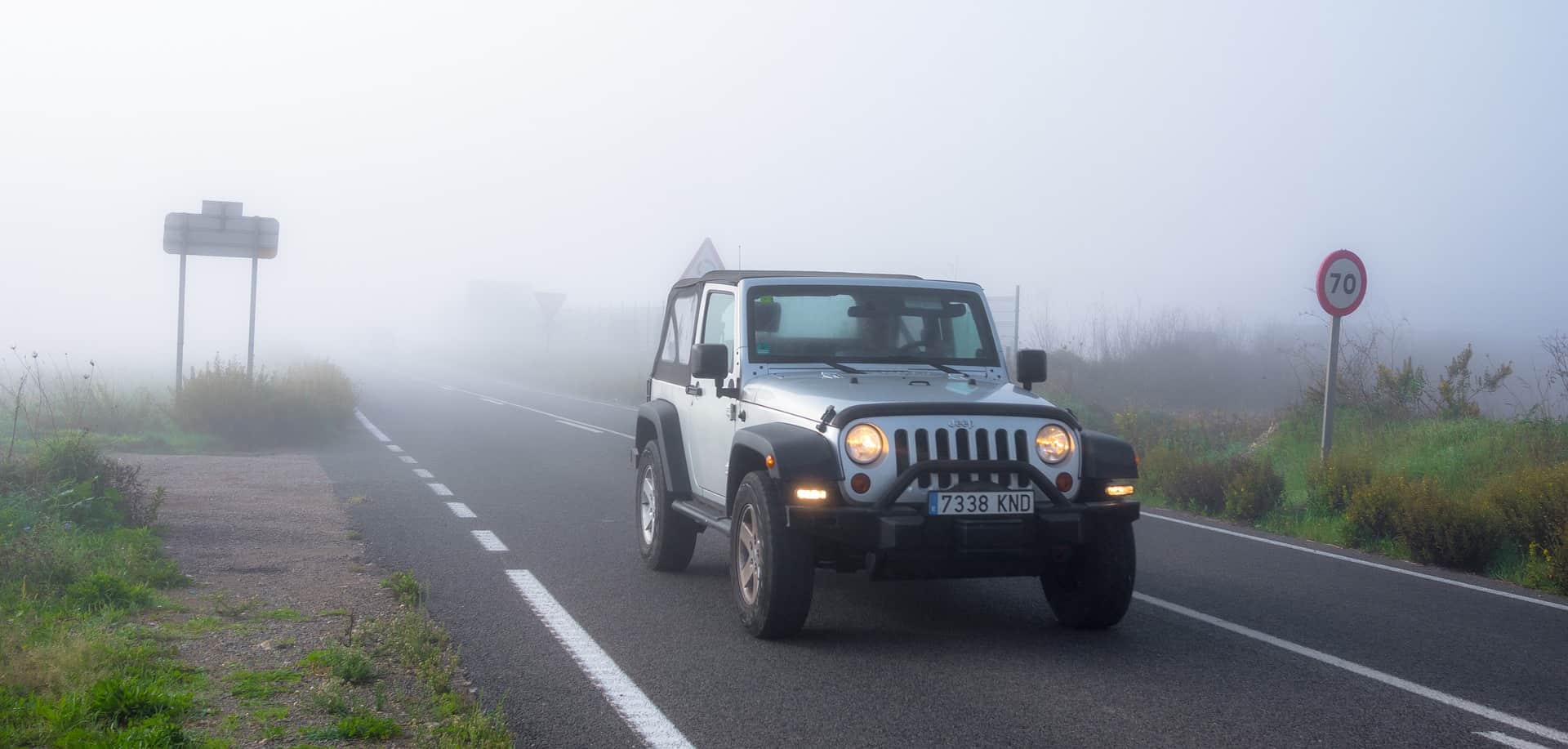
Via Pixabay
"What do I do if I have a road accident in France?"

Via Pixabay
Conclusion
While a driving trip through France may sound like a lot of work, it is a wonderful way to see the country, so don’t be put off. It always pays to be prepared when driving through another country and having a good understanding of the laws and road rules can help you avoid a number of problems or inconveniences. Once you're familiar with the rules, you can enjoy driving in France!
What about you? Have you ever driven through France? What was your experience? Let us know in the comments!

